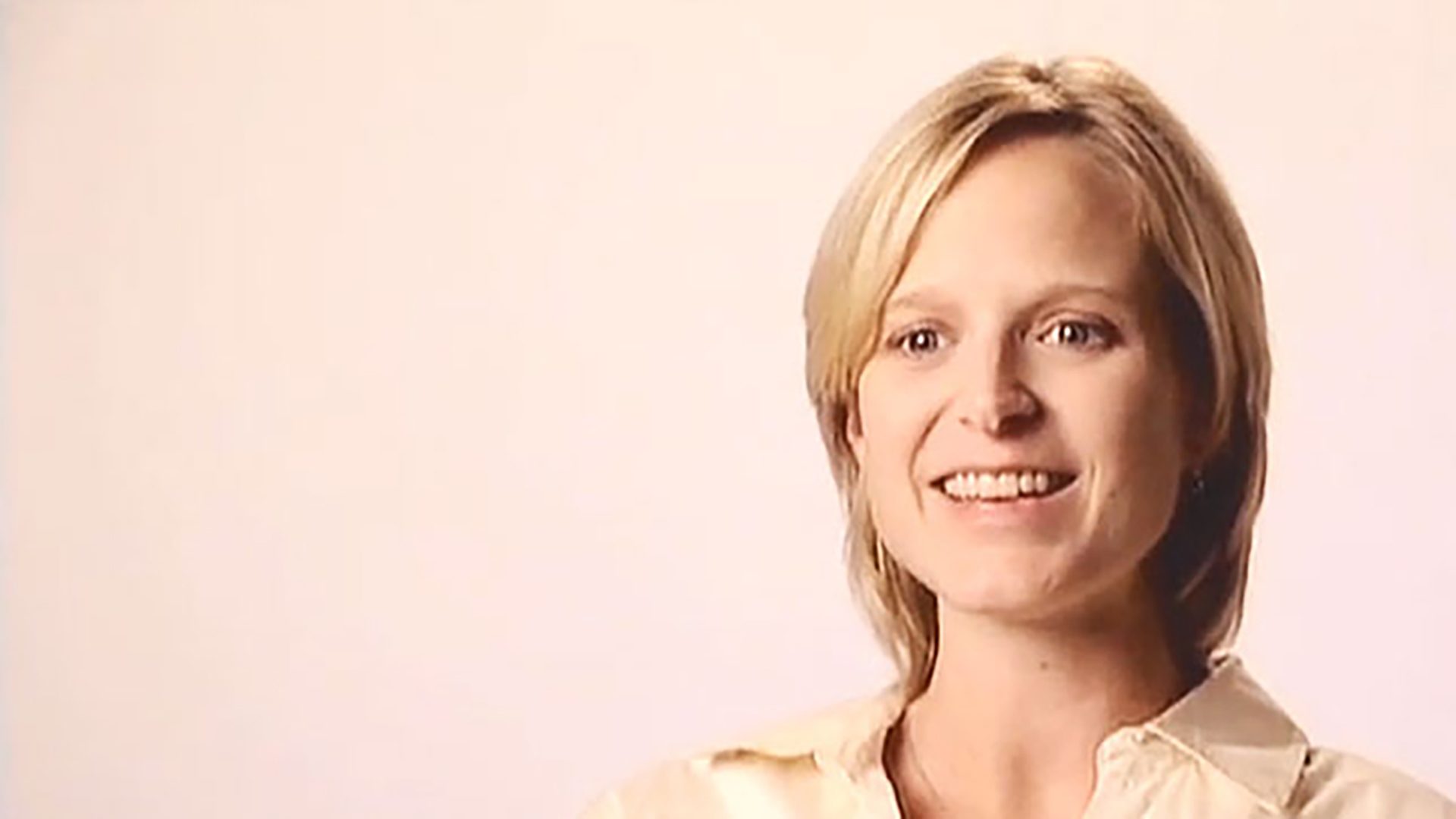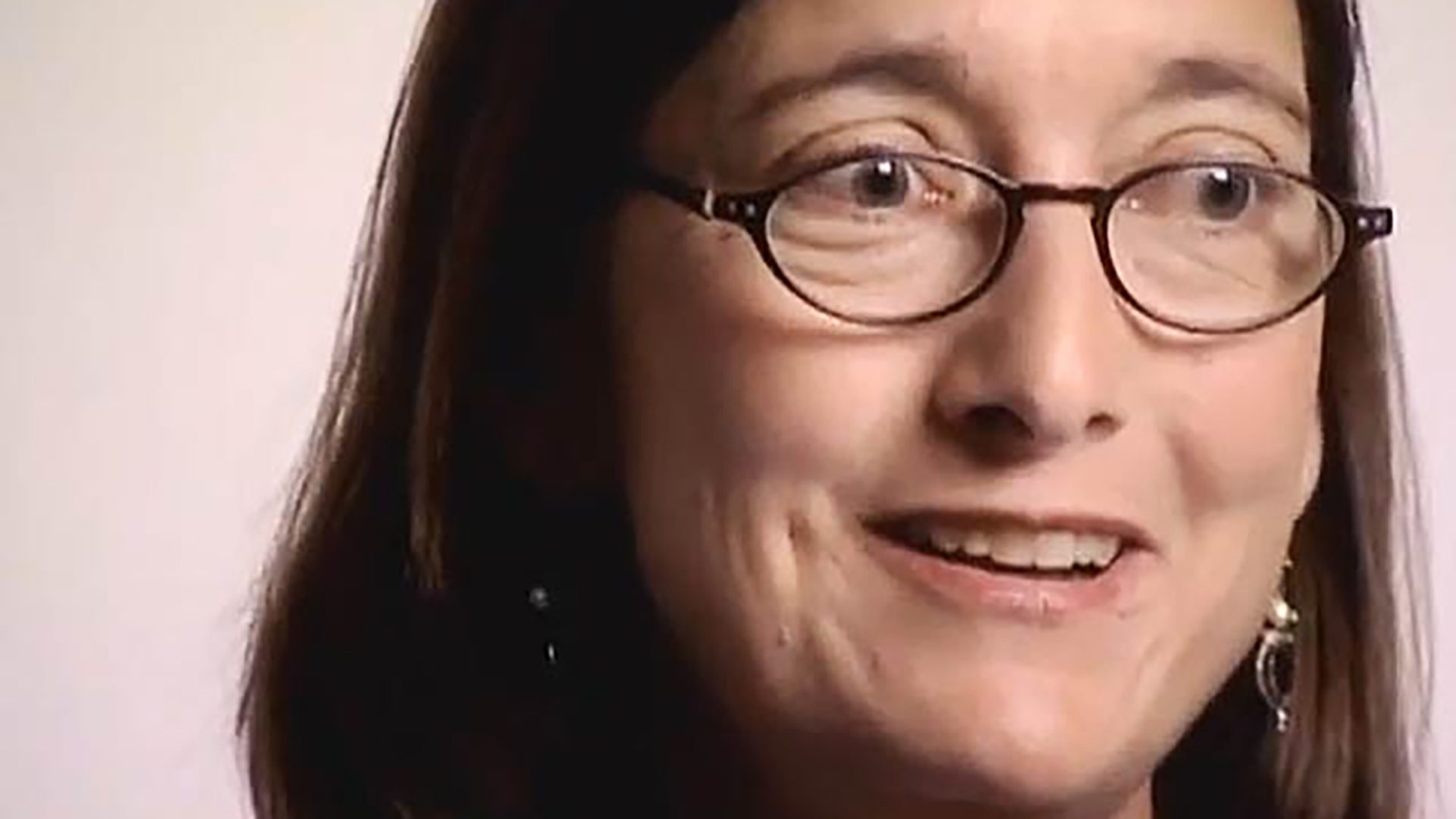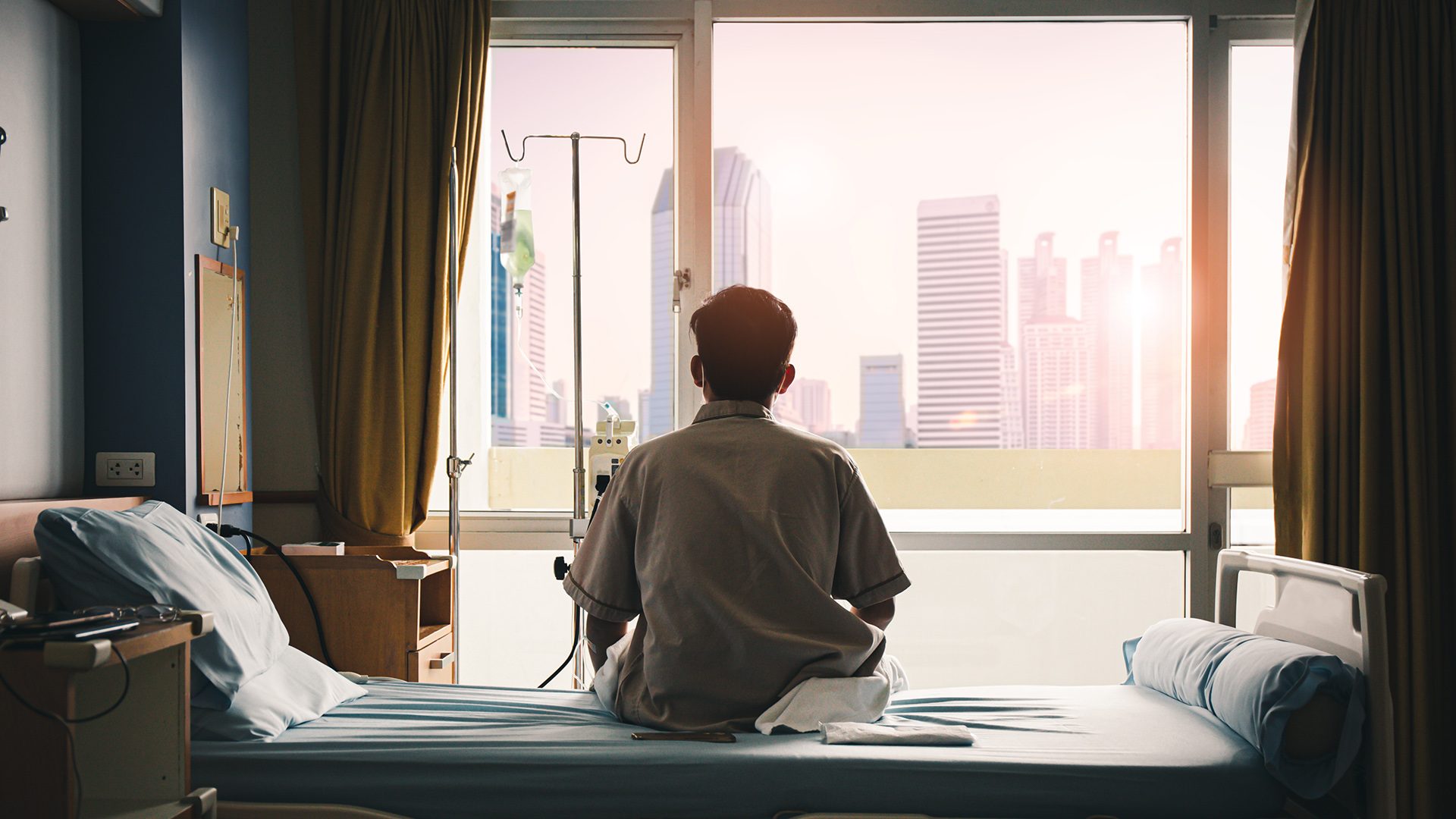Survivor Interview – Heidi A.
Ewing’s sarcoma survivor Heidi shares that to her, survivorship means having incorporated her cancer experience into her life in a positive way.

Survivorship, to me, means having incorporated my cancer experience into my life in a positive way. I’m not gonna say it was the best thing that ever happened to me, because it’s a terrible disease. But I think incorporating that experience and the lessons that I learned from it into my life have made all the difference in the world in how I live my life, how I deal with people, how I make decisions. To me, that’s what survivorship is about.
At the point before I was diagnosed, I was sort of floundering. When you’re in treatment, you spend a lot of time lying around thinking and watching the shadows move across the wall, so I thought a lot about what I was doing and where I was. And the experience I was going through was affecting the way I thought about things. Every day I said, “What’s important to me to do today?” And it was a really valuable lesson for me to carry on after treatment. If I ever now am having a difficult time dealing with a situation, I just say, “What would I do if I were in treatment? If I were re-diagnosed tomorrow, how would I deal with this situation?” And the answer is usually pretty clear.
Some people may not want to go back there, but for me, it’s really valuable to have that perspective to draw on. You wouldn’t want to live your life on the edge every single day. It’s a really difficult place to be. But being able to get back to that perspective of being on the edge, when it comes to really big situations, has for me been absolutely invaluable.
I was diagnosed when I was 26. Emotionally, the most difficult thing was the sense of isolation from the lack of other people my age who understood what I was going through or the issues that I was dealing with as a result of having had cancer as a young adult. It was hard, because your friends are great, but they can only understand up to a point, and your family, wonderful, but, you know, there’s certain things that you can only talk about with another survivor your same age who just gets it.
I had friends who would call up and dance around the subject. So, I would say, “Well, I went to the hospital yesterday and had a transfusion.” They’re like, “Oh, we don’t need to talk about that.” I really had to say a lot of times, “That’s all I have to talk about right now. And I need you to talk with me about this.” And if they couldn’t, then, you know, some people you just leave behind.
You have to sort of gauge whether they’re really not on your team or whether they’re just uncomfortable with the topic. Many times, I could put them at ease by using humor or making a bad joke, because a lot of people are just worried about saying the wrong thing. But if you can say the wrong thing first, then they’re like, “Oh, okay. That’s all right.” And they’ll make a bald joke or whatever. Not that they don’t want to help you or be there for you, but they don’t know how. I know it seems unfair, because everything’s on you, but a lot of times you have to be willing to tell them how or show them how.
I think I don’t worry about recurrence because you can’t live in that fear. None of us know when we’re gonna die. I could walk out in the street tomorrow and get hit by a bus, so why waste the energy worrying about the cancer coming back? Sometimes I think about secondary cancers as a result of my treatment. But there are certain things I can do and certain things I can’t do. And I worry about the things that I can do something about, and the things that I can’t do anything about, I just don’t waste energy on it.
I’m a lot more honest now. When I was in treatment, that was really, really important to me that people be honest with me and that I be honest with them: my doctors, my parents, my brothers, my friends. If I were feeling bad one day, I would say, “I’m not feeling well. I can’t talk to you today.” That has been a continuing thread in my life and in my relationships, letting people know what I’m thinking and demanding the same of them. Because it’s so easy to try and please people or to avoid difficult topics or thoughts or feelings, because it’s just unpleasant. But I think I learned when I didn’t have the energy to dance around things like that, it was just easier to deal with head-on.
Having had cancer, I didn’t want to spend time afterwards doing something I didn’t feel was valuable. You know, you don’t know how much time you have, so you want to make sure it counts. So, I had always had this in the back of my mind about the isolation that I had felt as a young adult and thought somebody should do something about that. And then I realized I have to do something about it, because, you know, who else is going to? Who better to do it? So, I started an organization called “Planet Cancer” which supports young adults with cancer. We try to bring young adults together to support each other, as well to create a community where they can find those other young adults who get it, no matter where they are. It’s something that I feel is immensely valuable and worth my spending all my time on.
The worst repercussions have been primarily in terms of health insurance. Making life decisions and really doing what I want to do have been hampered by the fact that I have to have health insurance. It’s an ongoing struggle, and I know it’s a struggle for many survivors. You have to learn how to ask the questions and how to navigate the system. It’s a real difficult bureaucracy to find your way around. And you really need to make sure that you’ve done research before you make certain decisions. You can’t just up and quit your job because you get mad at your boss one day. You have to think about that kind of thing before you do it, so you don’t make a rash decision that’s going to come back to haunt you.
One thing nobody prepared me for that was really difficult for me was that transition period. You go in and it’s your last treatment, and they say, “Okay. See you in three months.” And you’re just sort of like, “Wait a second. Yesterday I was fighting for my life, and what happened today? I feel the same.” It’s just such a scary drop-off. Everyone around you is like, “Oh, it’s over. You should be so happy. You can get back to normal.” But things are not normal.
Getting back to normal life just doesn’t happen overnight. It’s a lot of transitioning you have to do in your own head. When you’re in treatment, everything is so immediate. It’s so life or death, black or white, the big issues. Then you get back into real life and you have to think about things like picking up the dry cleaning. It’s hard to make that shift.
When you’re coming up on the end of active treatment and moving into follow-up or maintenance or whatever you’re doing, I think it’s a really good idea to have support systems in place and have a professional social worker or counselor lined up that you can talk to about these fears and these feelings, because they’re very real. But if you know that you’re going to have those feelings, and that it’s okay to have those feelings, I think it can help you move past the treatment. You have to give yourself permission to move on, because you can’t live in fear and sit there every moment and anticipate what might happen or what could happen.
Not to say that you shouldn’t be aware. I know I was very constantly aware of my body, listening to it and adapting my activities according to how I felt. I continued to do that but, over time, less so in a way that was fearful and more in a way of just caution. The first couple of years, every little headache is, “It’s back.” But it becomes easier, and then three years, it’s easier than that; four years, and maybe you’re not having a panic attack every time you go back for your annual checkup. I think it’s learning over time to trust yourself to be the monitor and to really be an advocate for yourself if you think that something’s wrong.
I think that that’s one thing that can help overcome the fear: knowing that you can advocate for yourself and trusting yourself to know when something’s wrong and needs to be followed up on. So, you go into the doctor, and they say nothing’s wrong, but at least you know. And I think that knowing that you have that ability, and that power can make things a lot easier to sort of smooth back into normal life.
My name is Heidi Adams, I’m 35 years old, and I’m a 10-year Ewing’s sarcoma survivor.

